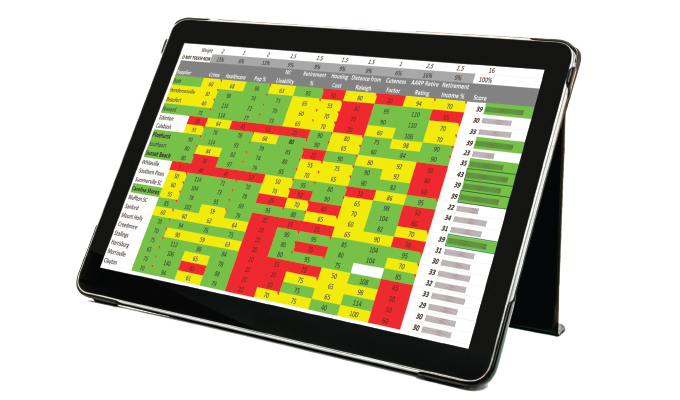By Preston Ingalls
I truly believe our lives are the result of our decision making. We are either recipients of good outcomes for proper decisions or victims of bad decisions. The product of our lives has less to do with luck, chance, serendipity, destiny, Acts of God, and more to do with our choices. So, why are some folks not as good at decision-making than others? Let’s face it—some people are better at making decisions than others. Here’s my go-to for making major decisions: the decision matrix.
DECISION MATRIXES
For many years, I have used decision matrixes to assist with major decisions like hiring, selecting a house, buying a vehicle, investments, etc. When the risks are high, I chose to use a sequential method of weighted categorical comparisons. I gather facts and data to narrow my choices and then finish up with a simple Pro versus Con comparison coupled with gut-level intuition. I may also couple it with soliciting advice.
To help illustrate this, I will use a recent example. My wife and I have lived in Raleigh NC for 27 years. As I approach retirement, we have decided that the rapid expansion and growth of Raleigh has escalated housing costs, taxes (recent announcement of a 20% increase), traffic, crime and other factors that made it less attractive for us to retire in. Therefore, we wanted a quieter place to retire. Having spent a few weeks examining Florida as an option, we decided North Carolina appealed more to our needs. We did consider two towns in South Carolina.
I created a decision matrix to help with the process. The first thing I had to do was to determine our objectives or criteria for the decisions. We wanted smaller towns versus larger cities, so we set a population ceiling of 10,000. We wanted a low crime rate, especially compared to Raleigh. We wanted the housing cost to be lower or equal to Raleigh. We also sought a larger percentage of the population near our age for social purposes. We looked at the availability of healthcare. Another consideration was the distance from Raleigh as we have grandchildren and a business there that I will be transitioning out. AARP provides ratings for each town based on numerous factors, which we also considered as important. Another important consideration was how much my annual retirement income in Raleigh would compare as far as buying power in a town.
We weighted each criterion or objective relative to the others based on its level of importance. For instance, crime had a weight of “2” compared to Cuteness Factor which was “1.” Because the AARP rating was already an index or combined rating, I weighted it a heavy “3,” making it the highest factor to consider. Each cell was colored to show if it was out of range, close to range or in range (red, yellow, or green).

I then researched towns that were recommended as Best Small Towns in North Carolina on the internet. I used Sperling’s Best Places, FBI Alert Notifications, and AARPs Livability Index for the actual ratings.
I had no interest in fighting ice and snow, so I eliminated the recommended mountain ones like Blowing Rock, Banner Elk, and Boone.
The rating scale or score for each was 100 points, so I had to create a relative scale. It was easy when it was percentage ratings, but sometimes I had to get creative to assign points for each category or criteria.
At the end, I reviewed my ratings with my wife and she agreed with the top three. We will now visit each and interview locale people for their opinions (advice) on living there. We will do a Pro and Con list and finally rely on our “gut” or intuition for the final choice.
The Australian philosopher Peter Singer once said, ™Human decision making is complex. On our own, our tendency to yield to short-term temptations, and even to addictions, may be too strong for our rational, long-term planning.∫
CLOSING THOUGHT
Combine a systematic method with empirical and advisory but in the end, it will need to be intuitive. Taking the time to make the right choices is a choice itself. By the way, we now live 2 miles from Sunset Beach, North Carolina, near Carolina Shores. We love it.
About the author:
Preston Ingalls is president and CEO of TBR Strategies, LLC, a Raleigh, North Carolina-based maintenance and reliability firm specializing in the construction and oil and gas industries. Preston can be reached at pingalls@tbr-strategies.com.
Modern Contractor Solutions, February 2021
Did you enjoy this article?
Subscribe to the FREE Digital Edition of Modern Contractor Solutions magazine.



